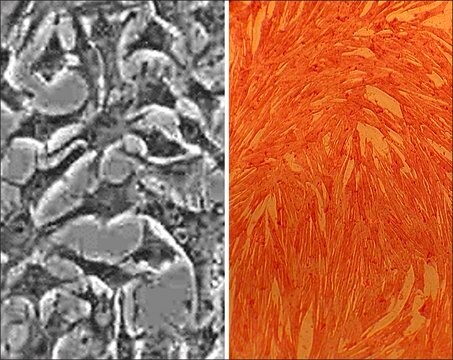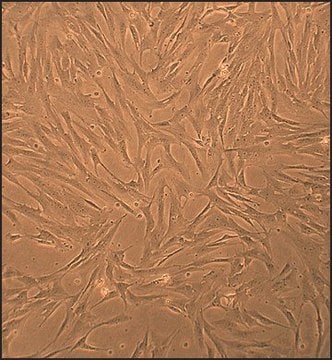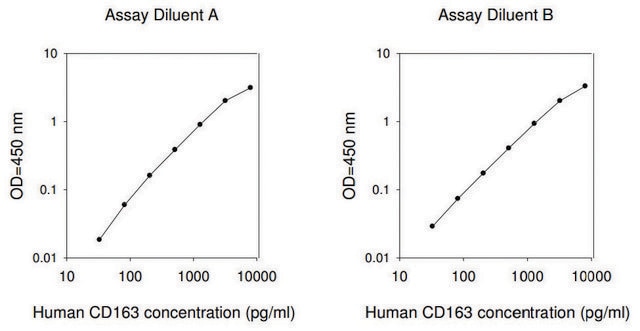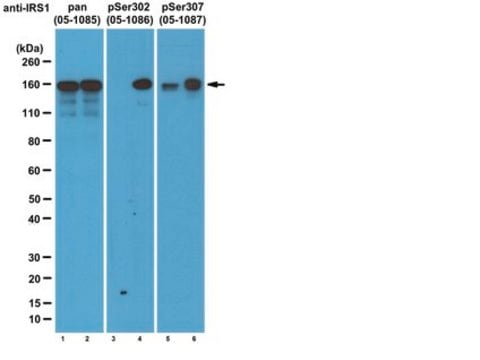P350-05
Porcine Coronary Artery Smooth Muscle Cells: PCASMC (Cryovial)
Sign Into View Organizational & Contract Pricing
All Photos(2)
About This Item
UNSPSC Code:
41106514
NACRES:
NA.81
Recommended Products
biological source
Porcine coronary artery
Quality Level
form
solid
packaging
pkg of 500,000 cells
manufacturer/tradename
Cell Applications, Inc
growth mode
Adherent
karyotype
2n = 38
morphology
smooth muscle
technique(s)
cell culture | mammalian: suitable
relevant disease(s)
diabetes; stroke; cardiovascular diseases
shipped in
dry ice
storage temp.
−196°C
Related Categories
General description
Lot specific orders are not able to be placed through the web. Contact your local sales rep for more details.
PCASMC were used to investigate the role of c-Jun in smooth muscle proliferation, and to show that c-Jun inhibition abrogates smooth muscle cell growth and intimal thickening after arterial injury (Khachigian, 2002). PCASMC were also used to develop poly (l-lactide-co-caprolactone) nanofibrous scaffold material with potential for tissue engineering (Dong, 2008).
Characterization: positive for smooth muscle cell specific alpha-actin expression.
PCASMC were used to investigate the role of c-Jun in smooth muscle proliferation, and to show that c-Jun inhibition abrogates smooth muscle cell growth and intimal thickening after arterial injury (Khachigian, 2002). PCASMC were also used to develop poly (l-lactide-co-caprolactone) nanofibrous scaffold material with potential for tissue engineering (Dong, 2008).
Characterization: positive for smooth muscle cell specific alpha-actin expression.
Cell Line Origin
Artery
Application
vascular research, supply of blood to heart muscle
Components
Porcine Smooth Muscle Cell Basal Medium that contains 10% FBS and 10% DMSO
Preparation Note
- 2nd passage, >500,000 cells in Porcine Smooth Muscle Cell Basal Medium that contains 10% FBS and 10% DMSO
- Can be cultured at least 16 doublings
Subculture Routine
Please refer to the PCASMC Culture Protocol.
Storage Class Code
11 - Combustible Solids
WGK
WGK 3
Flash Point(F)
Not applicable
Flash Point(C)
Not applicable
Certificates of Analysis (COA)
Search for Certificates of Analysis (COA) by entering the products Lot/Batch Number. Lot and Batch Numbers can be found on a product’s label following the words ‘Lot’ or ‘Batch’.
Already Own This Product?
Find documentation for the products that you have recently purchased in the Document Library.
In Young Choi et al.
Biomaterials, 269, 120222-120222 (2020-08-02)
Stem cell fate is largely determined by cellular signaling networks and is heavily dependent on the supplementation of exogenous recombinant proteins into culture media; however, uneven distribution and inconsistent stability of recombinant proteins are closely associated with the spontaneous differentiation
Our team of scientists has experience in all areas of research including Life Science, Material Science, Chemical Synthesis, Chromatography, Analytical and many others.
Contact Technical Service



![1-(3,4-Dihydroxyphenyl)-2-[(4-hydroxy-6-methyl-2-pyrimidinyl)sulfanyl]ethanone AldrichCPR](/deepweb/assets/sigmaaldrich/product/structures/313/865/75855d66-d3c7-4905-a4c6-f90c5da70c43/640/75855d66-d3c7-4905-a4c6-f90c5da70c43.png)

